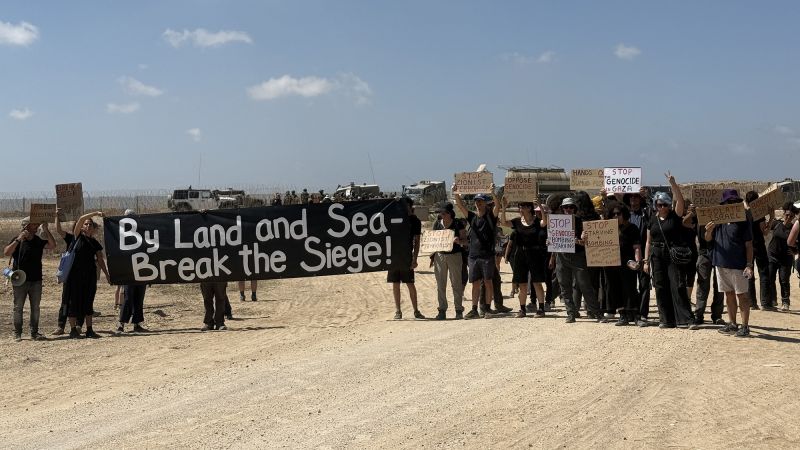On a hot Friday in September, a group of Israelis, primarily Jewish activists, marched near Gaza’s border, demanding an end to what they described as a siege that has persisted for decades. They called for international sanctions against Israel, denouncing the government’s actions as genocidal.
Slukar Amran, representing a minority viewpoint in Israel, lamented the lack of public support and emphasized the need to confront societal denial over the ongoing violence against Palestinians. This protest occurred shortly after an independent UN investigation concluded that Israel had committed acts of genocide against Palestinians in Gaza.
In stark contrast, many Israelis in areas like Sederot view the situation through a lens of entertainment, gathering to witness military actions against Gaza, expressing disdain for the lingering structures, and wishing for complete destruction.
Following a deadly attack by Hamas on October 7, which resulted in the deaths of 1,200 Israelis, the country has been grappling with trauma and a desire for closure, mainly focused on recovering hostages rather than reflecting on the high Palestinian casualties often neglected in protests.
Despite a general consensus among Israelis calling for a ceasefire, many protestors prioritize the return of hostages without addressing the substantial loss of Palestinian lives in the conflict. A significant number of Israelis exhibit denial towards Palestinian suffering, as evidenced by media analysis indicating a lack of coverage on human impacts in Gaza.
Notably, dissenting voices within Israeli journalism face backlash for reporting on Palestinian suffering, and mainstream media has been criticized for dehumanizing Palestinians, effectively creating a disconnect between Israeli perspectives and international views on the war.
Activists argue that society’s denial regarding the existence and plight of Palestinians is rooted in decades of political rhetoric and an unwillingness to acknowledge their humanity. With ongoing military actions under Netanyahu’s leadership, Israel finds itself increasingly isolated regionally, resulting in a complicated geopolitical landscape amidst calls for justice from both sides.
For activists at the Gaza border, raising awareness of war crimes committed in their name is a critical stance, reflecting an ongoing struggle to confront the realities of the situation.
Source link


